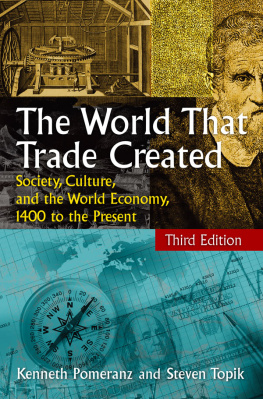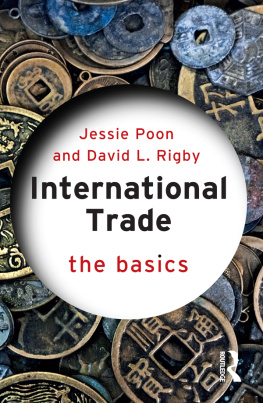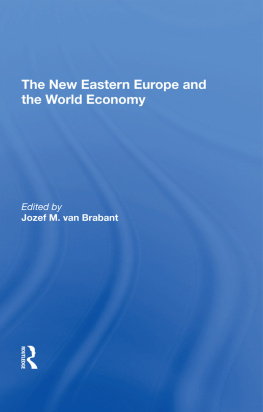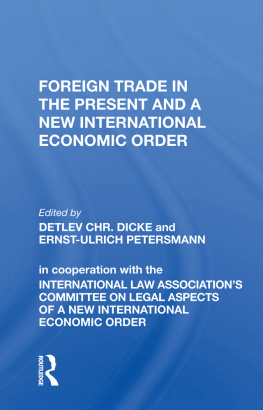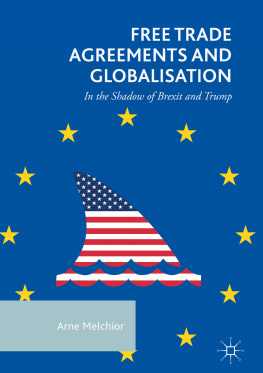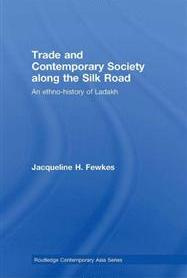First published 2013 by M.E. Sharpe
Published 2015 by Routledge
2 Park Square, Milton Park, Abingdon, Oxon OX14 4RN
711 Third Avenue, New York, NY 10017, USA
Routledge is an imprint of the Taylor & Francis Group, an informa business
Copyright 2013 Taylor & Francis. All rights reserved.
No part of this book may be reprinted or reproduced or utilised in any form or by any electronic, mechanical, or other means, now known or hereafter invented, including photocopying and recording, or in any information storage or retrieval system, without permission in writing from the publishers.
Notices
No responsibility is assumed by the publisher for any injury and/or damage to persons or property as a matter of products liability, negligence or otherwise, or from any use of operation of any methods, products, instructions or ideas contained in the material herein.
Practitioners and researchers must always rely on their own experience and knowledge in evaluating and using any information, methods, compounds, or experiments described herein. In using such information or methods they should be mindful of their own safety and the safety of others, including parties for whom they have a professional responsibility.
Product or corporate names may be trademarks or registered trademarks, and are used only for identification and explanation without intent to infringe.
Library of Congress Cataloging-in-Publication Data
Pomeranz, Kenneth.
The world that trade created : society, culture, and the world economy, 1400 to the present / by Kenneth Pomeranz and Steven Topik.3rd ed.
p. cm.
Includes bibliographical references and index.
ISBN 978-0-7656-2354-6 (hbk. : alk. paper)ISBN 978-0-7656-2355-3 (pbk. : alk. paper)
1. CommerceHistory. 2. CommerceSocial aspectsHistory. 3. CultureHistory. 4. IndustrializationSocial aspectsHistory. 5. International economic relationsHistory. 6. Economic history. I. Topik, Steven. II. Title.
HF352.P58 2012
382.09dc23 | 2012014911 |
ISBN 13: 9780765623553 (pbk)
ISBN 13: 9780765623546 (hbk)
Contents
by Julia Topik
When fifteenth-century China began replacing depreciated paper and copper currency with silver, it set into play forces that would affect remote peoples on five continents. The Chinese traded their silks to the British and the Dutch, who bought them with Spanish pesos that had been minted by African slaves in what is today Mexico and Bolivia and mined by indigenous peoples recruited through adapted forms of Incan and Aztec labor tribute. Some of the silver took the more direct route from Mexico to China via the Philippines on Spains Manila Galleons. European pirates hovered around Americas Caribbean and Pacific coasts, in the Mediterranean, and off the east coast of Africa, where they struggled with Arab and Indian corsairs who coveted the silver cargos and the silk and spices that they purchased.
The silver found its way east also through Muslim and later Christian purchases of coffee in Yemens Red Sea port of Mocha, the world monopoly producer for more than a century. Pilgrims to Mecca spread the taste for coffee from Morocco and Egypt to Persia, India and Java, and the Ottoman Empire. Finally Frances Louis XIV in his soirees introduced his Catholic aristocracy to the Muslim drink, served on Chinese porcelain, sweetened with sugar grown on the slave plantations of the African Atlantic island of So Tom? and later Brazil, and followed by a smoke of Virginia tobacco. Some noblemen preferred chocolate, a drink of the Aztec nobility so precious that cacao beans served as money, while the English came to favor Chinese tea, also turned into coin in Siberia.
Many lands and cultures were swept into the vortex of the world economy, but that did not mean that they passively accepted its terms. In 1770 a French trader in Senegal was frustrated with local African merchants who, far from readily accepting baubles and beads, refused to trade slaves even for French furniture. The Africans demanded Dutch or British chairs and bureaus, which they found more stylish. At roughly the same time, British merchants in Canada were unable to sell Virginian tobacco to the Iroquois, who had already acquired a taste for African-cultivated Brazilian tobacco and accepted no substitutes in exchange for the beaver pelts they offered for the elegant garments of northern Europe.
In Naples, meanwhile, enraged consumers threw a shipload of potatoes overboard during a famine, convinced that the Peruvian tuber was poison. At the same time, fashionable men and ladies in London delicately sprinkled grated potato on other foods, believing that the tuber was an aphrodisiac.
Clearly the world economy has connected myriads of far-flung peoples for a long time. Although globalization has today reached unprecedented proportions, there is really nothing new about the New World Order. Nor is diversity a recent invention. The object of this book is to describe, through a series of stories, the long-standing interconnectedness of the world. We attempt to wed the insights of world systems analysisthat the local must be understood in its global contextwith the perspective of local studies that see variation and local agency shaping the global.
The stories included here began as articles in a column, Looking Back, which we wrote for the business magazine World Trade for more than ten years. The column focused on the history and the creation of the world economy. Steven Topik and then Kenneth Pomeranz were responsible for the column. Julia Topik contributed a guest article. This book is not simply a collection of the articles, however. Rather, it is unified by several central propositions on the nature of the world economy and the forces that shape it. We reject a Eurocentric teleology that sees Europeans as the prime movers and everyone else responding to them; instead, we see the world economy as long-standing and non-Europeans playing key roles in its development. To the extent that Europeans had advantages, they often came as much from the use of violence or from luck (as when European-borne diseases devastated New World societies, opening vast territories for conquest) as from economic precocity. Only in the latter part of our period did Europe clearly have superior productive technology, and it is not clear that it ever had a unique amount of entrepreneurship or social flexibility.
Consequently, politics have been as central to shaping international commerce as economics have been. The market structures that are basic to our world were not natural or inevitable, always latent and waiting to be opened up; rather, markets are, for better or worse, socially constructed and socially embedded. They required a host of agreements on weights, measures, value, means of payment, and contracts that have not been universal nor permanent, plus still more basic agreements about what things should be for sale, who was entitled to sell them, and which people could haggle about prices (and settle disputes without drawing swords) without compromising their dignity in the eyes of their neighbors. In the process of negotiating these new rules of conduct, the very goods being bought and sold sometimes became the new markers of status and carriers of meaning. Thus natural uses and advantages clashed with human-made meaningsas when people resisted the introduction of the potatoand associations so deeply embedded that they probably seemed natural were gradually reversed: over time, chocolate became associated with children, sweetness, and domesticity rather than with warriors, girding for battle, and religious ecstasy. In other words, goods themselves have social lives in which their meanings, their usefulness, and their value are in flux; demand and supply are culturally determined by people with loves, hatreds, and addictions, not by reified market forces.

